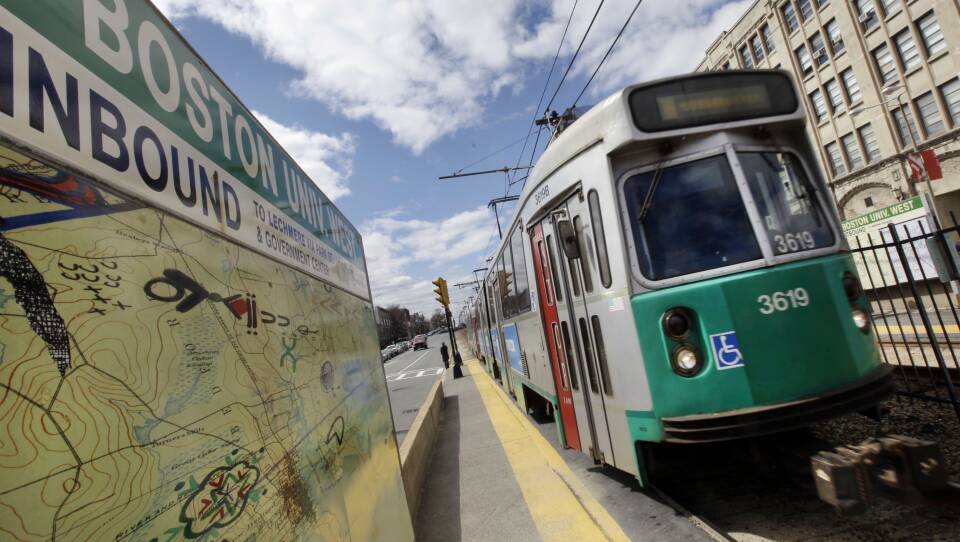The MBTA is asking riders to contribute their two cents on whether it's worthwhile to retain expensive late night weekend service, but the future for early morning trains in sleepy Boston doesn't look good.
At the first of three public meetings, T management asked for feedback from those who ride during the extended hours early Saturday and Sunday mornings.
According to the T, around 20 people, mostly college students, showed up at MBTA headquarters to urge the board to keep the service, or to alter it in a way that would make it more feasible. There's another meeting schedule for Tuesday evening and one Wednesday in Cambridge.
The T's board has already recommended ending the service. They say at a cost of $13 per passenger per ride, it's too expensive.
The T is pretty desperate these days to find any cost savings it can, and the late night pilot service has had a target on it's back since Gov. Charlie Baker's new Fiscal Management and Control Board began work this summer to cut costs.
According to the MBTA, the pilot program has lost around 20 percent of its ridership since debuting in March 2014. In June 2015, the board chose to close the system a half hour earlier, at 2 a.m., on Saturday and Sunday mornings. Late night service costs the MBTA $14 million to operate. The transit system is expected to have a $242 million deficit in its operating budget next year.
One of the pilot program's goals was to attract sponsors from Massachusetts's higher education and business communities to help foot the bill and possibly help Boston shed its early-to-bed image. That didn't pan out, as the T found itself on its own after initial excitement for the late trains died out.
"Private contributions to support late-night service were time-limited and insufficient to meaningfully offset operating costs; anticipated contributions did not materialize," an MBTA presentation on late night services says.
According to MBTA staff, a woman who lives near the tracks was in favor of ending the service because of the noise it creates.
MBTA General Manager Frank DePaola says the service is mostly used by restaurant and bar patrons.
"We've been able to provide it so far, but it is a significant experience for us so we have to visit balancing that demand with providing regular service to other customers," DePaola said.
DePaola said the public meetings will inform the board's final decision, but the noise you hear sure sounds like an ax being sharpened.





